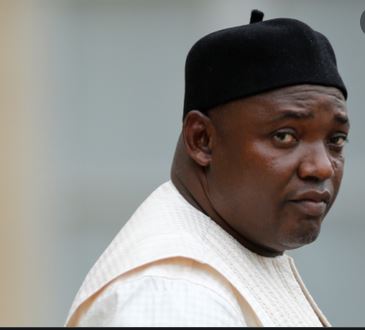
Gambian President Barrow wins re-election; opposition cries foul
Published on December 6, 2021 at 11:51 AM by Face of Malawi
Gambian President Adama Barrow has comfortably won re-election, the electoral commission said on Sunday, though he may face a legal challenge from opposition candidates who rejected the results because of unspecified irregularities.
The vote was the first in 27 years without disgraced former President Yahya Jammeh, who was forced into exile in Equatorial Guinea after refusing to accept defeat to Barrow in 2016.
Jammeh’s despotic 22-year rule over the small West African nation of 2.5 million people, which began with a 1994 coup, was characterised by killings and torture of political opponents.
Saturday’s peaceful election was seen by many as a victory for democracy that helped draw a line under that troublesome period.
Once cowed by Jammeh’s omnipresent secret police, crowds of people hit the streets of Banjul on Sunday night to celebrate, or drove around in their cars, honking horns. Hundreds gathered in a park opposite the presidential palace to listen to Barrow speak.
“Democracy has taken its course,” Barrow told the cheering crowd after the results were announced. “I have been the lucky person to be chosen by you. I’ll use all the resources to make Gambia a better place for all.”
Barrow’s first term provided a welcome change for many to Jammeh’s brutal tenure. But progress was hobbled by the coronavirus pandemic, which damaged an economy that relies heavily on tourism, as well as exports of peanuts and fish.
In the run-up to the election, Jammeh had tried to persuade supporters to vote for an opposition coalition in telephoned speeches that were relayed to campaign rallies. read more
But he failed to dent Barrow’s following. The president received around 53% of Saturday’s vote, far outstripping his nearest rival, political veteran Ousainou Darboe, who won about 28%.
As results came in on Sunday, representatives from all opposition parties signed off on nearly all the tally sheets read to the election commission.
But later in the day, Darboe and two other candidates, Mama Kandeh and Essa Mbye Faal, said they would not accept the results because the results took longer than expected and because of problems at polling stations.
They did not provide specifics or evidence of wrongdoing.
“We are concerned that there had been an inordinate delay in the announcement of results,” their statement said. “A number of issues have been raised by our party agents and representatives at the polling stations.”
The statement did not say what they would do now, only stating that “all actions are on the table.


